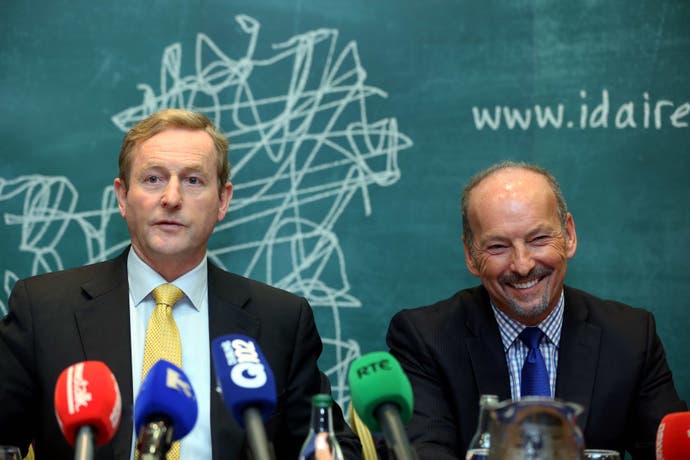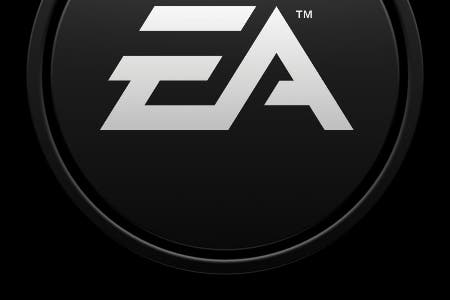EA wants its peers to be Apple, Google, Facebook, not Take-Two, Activision and Ubisoft
Makes huge investment in customer service as business evolves.
EA wants its peers to be Apple, Google and Facebook, not publishing rivals Take-Two, Activision and Ubisoft.
The Battlefield and FIFA maker is transitioning into a games as a service business, and as a result sees itself moving away from traditional publishing towards a digital direct to consumer model - with customer service the focal point.
"We think of ourselves less as a peer to our good friends at Take-Two, Activision and Ubisoft and more as a peer, quite frankly, to the service companies like Facebook, Google, Apple and Amazon," EA COO Peter Moore told Eurogamer.
"We start to think about ourselves 24/7 with that consumer as those companies do, because we're a service organisation now and that will certainly increase in the future."
Over the last three years EA has invested heavily in digital and broadened its portfolio of games to encompass social as well as core. Its revenue from digital has increased significantly even when it's best known for core game series sold in bricks and mortar shops, such as Battlefield, Mass Effect, Dragon Age and Dead Space, and sports simulations such as FIFA and Madden.

To fuel this transition EA has invested millions into its customer service offering, powered by a new service centre in Galway, Ireland staffed by hundreds who will help solve gamer problems, typically along the lines of achievements not showing up or downloadable content not working properly. The Galway facility, alongside its customer service HQ in Austin, Texas, will, according to Moore, help EA catch up with the likes of Google and Facebook in more areas than one.
"You've got to benchmark yourselves against best in class," he said. "I don't purport to put EA onto their levels yet because we haven't scaled and it's not been our core competency except for the last three or four years, but I can tell you this: our internal metrics, what we call CSAT (Customer Satisfaction), have grown enormously in the last few years."
Earlier this year EA had the dubious honour of being named the worst company in America by watchdog site The Consumerist. I asked Moore if EA's investment in customer service was in part a response to this.
"No not at all," he replied. "We are several years into this. The worst company in America stuff, I mean, that was just... I don't even know how to respond to that.
My message to my peers in the publishing industry: if you're not doing this and you haven't done this already, you're probably already late in getting yourself ready for this next evolution of the industry
EA COO Peter Moore
"The investments we've been making for years now will continue to help our customers in real-time. That is going to be the key to our success. My message to my peers in the publishing industry, if you're not doing this and you haven't done this already, you're probably already late in getting yourself ready for this next evolution of the industry. In EA's case we see this as a competitive advantage in serving our gamers and helping them in any way we can as we move into this games as a service based business model we're now facing."
EA currently sees 20 million contacts, as they're called, to its customer service centres every year. These can be over the phone, in a live chat with an advisor or in an email.
In previous years companies like EA relied on retailers to pick up much of this slack when gamers had problems with game discs. As Moore put it, "We were at arms length with the consumer."
"Over the last few years our role and our obligation to the consumer has accelerated," he said. "We've been building out our competency in this area probably now for a full three years, to the extent where now we've got two major centres of excellence in customer experience.
"But it's the minimum price of entry quite frankly if you want to be a player in our industry two or three years from now, where all of our games are services, they're always on, we're managing your problems 24 hours a day, seven days a week.
"This is what you have to do, otherwise I don't think you can take money from a consumer for some kind of a service or a subscription or micro-transactions, being trusted with their credit cards directly, and not have this level of quality and quantity of service on a global basis.
"We're making sure we're positioned well to serve the consumer in the future here. If you're not doing this as a game publisher, a, I think you're going to fall behind, and b, I think you're not being honest with the consumer about what you need to do to deliver what we call an SLA, a Service Level Agreement with the consumer, which is if you buy our stuff we'll take care of you."
Moore said the most common issue players have is that they are unable to log in to EA's various services for whatever reason - typically because of a lost password. But there are many types of problems gamers run into.
"In this world now of direct download of micro-transactions, premium DLC map packs, it's typically, I can't get my map to load, I can't recognise my DLC, I've paid for something, I don't see it, I can't log in. I can't log in may well be the number one. Just, I forgot my password," Moore explained.
"We chuckle about that, but that is where we're on our guard the most here, because we are like any online company that safeguards information on behalf of consumers have to watch for phishing scams, for people who are calling up and trying to lure our agents into giving information they shouldn't have. We're dealing in a multi-billion dollar industry with so much of our revenue now going online. For the less scrupulous members of society that's very tempting."
That's nothing to do with us. Once you've hacked somebody's account then you go in. It's like blaming the money for somebody robbing a bank. It's not the money's fault, it's the bank's fault
Peter Moore on FIFA Ultimate Team phishing scams
Perhaps the most high-profile example of this is the ongoing issue with FIFA Ultimate Team, which has become a target for phishing scams.
Moore said EA's customer service staff are trained to identify when someone is trying to phish for information in order to gain enough information that they can hack a PlayStation Network or Xbox Live account.
But he said the FIFA Ultimate Team issue is separate because it is the result of scammers targeting an incredibly popular game that involves real-money transactions.
"There are phishing scams that people will do where they will try to get Xbox Live or PlayStation Network passwords, and then for better or worse they will look at high activity games where digital currency is involved as targets to go after," he said.
"But that's nothing to do with us. Once you've hacked somebody's account then you go in. It's like blaming the money for somebody robbing a bank. It's not the money's fault, it's the bank's fault.
"We look at this and we're trained at a high level to try and stop it. We're not perfect. When you're dealing with 20 million contacts a year, somebody's going to do something here. But we're focused on privacy and security. It's to help people with their game experiences no matter what they have. That's what the agency here in Galway and Austin and all around the world are trained to do. The massive majority of people are people contacting us because they need help with their games. That's what our job is, to help them get back playing and enjoying their games again."















